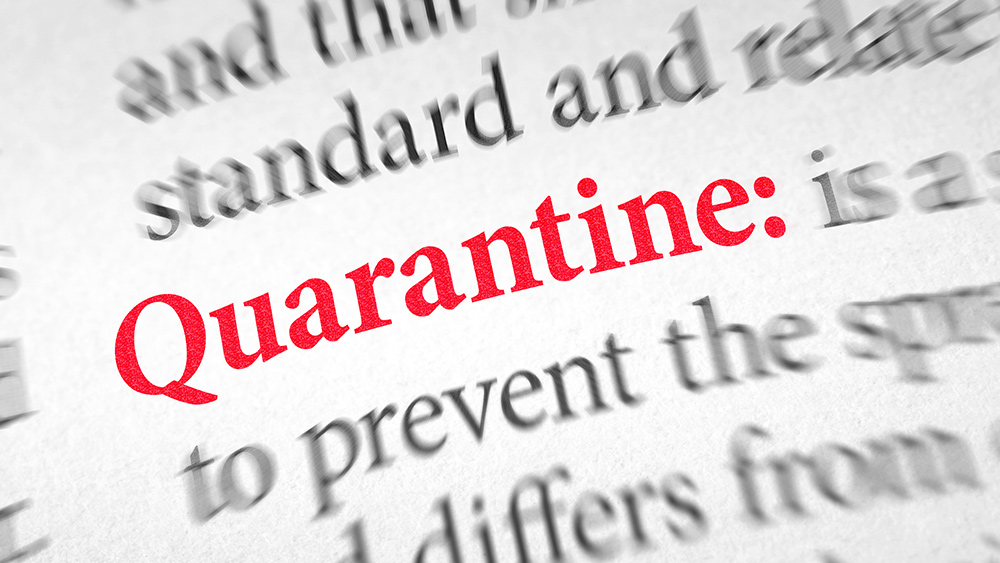Rhodiola significantly improves mental health and promotes a calm state of mind
09/02/2021 / By Virgilio Marin

Rhodiola rosea is a potent herb commonly grown in the wild Arctic region. Also known as arctic root and golden root, rhodiola is used in traditional medicine to treat anxiety, fatigue and weakness, and improve endurance, work performance and tolerance of high altitudes. Nowadays, it is commonly used to boost energy levels, improve athletic performance and treat depression, anxiety and other symptoms.
Rhodiola is considered an “adaptogen,” meaning it helps your body adapt to stress. Read the studies below to learn more about the adaptogenic effect of rhodiola.
Studies show rhodiola improves mental health
In a 2017 study published in the journal Neuropsychiatric Diseases and Treatment, Austrian and German researchers found that rhodiola promotes a calm state of mind and helps reduce symptoms of burnout, an “occupational phenomenon” caused by chronic workplace stress.
Austrian and German researchers recruited 118 burnout patients and asked them to take 400 milligrams (mg) of rhodiola daily over a period of three months. The researchers assessed the participants’ symptoms using various burnout screening tests as well as language and sleep quality tests. Assessment occurred before starting supplementation and on weeks one, four, eight and 12.
The team found that the participants slept better and experienced rapid improvements in all measures of fatigue and burnout, including overall stress levels, fatigue, irritability, anxiety and depression. They also displayed improvements in high-level cognition and decision making and reported increased frequency of sexual activity and increased overall satisfaction with their sex life. These improvements occurred during the first week and continued to increase for the duration of the study, according to the researchers.
In a 2012 study published in the journal Phytotherapy Research, British researchers recruited more than 100 individuals that exhibit stress symptoms and had them take 200 mg of rhodiola extract twice a day for four weeks.
Using various stress and fatigue questionnaires, the researchers found “clinically relevant improvements” in regard to stress symptoms, disability and functional impairment. All participants reported experiencing relief from stress and fatigue and 83 percent of them reported that their symptoms were either “much improved” or “very much improved.” These improvements were observed as early as day three of treatment and continued after weeks one and four.
Rhodiola has several mechanisms of action that can explain these findings. For one, it helps balance amounts of the stress hormone cortisol and increase levels of a stress-resisting protein called Hsp70. It also stimulates serotonin and dopamine activity and boosts the synthesis of adenosine triphosphate, the main source of energy for most cellular processes. In addition, compounds in rhodiola like rosavin and salidroside can help fight oxidative stress and inflammation. (Related: The potential neuroprotective properties of salidroside from Rhodiola rosea.)
Precautions for taking rhodiola supplements
Rhodiola is generally safe and well-tolerated. In fact, the suggested dosage of rhodiola is less than two percent of the amount shown to be dangerous in animal studies. In rare cases, the herb can cause headache, stomachache, drowsiness, dizziness and difficulty sleeping.
Rhodiola is available in tablets, capsules and tea. Check the labels of these supplements to ensure that they contain three percent rosavin and one percent salidroside. These are the naturally occurring proportions of these compounds in the herb.
The optimal dosage of rhodiola for improving symptoms of stress, fatigue or depression is 400 to 600 mg in a single dose per day. If you’re after its performance-enhancing effects, take 200 to 300 mg of the herb an hour or two before exercise. Add black pepper to rhodiola tea to boost absorption.
Learn more about the health benefits of rhodiola at Herbs.news.
Sources include:
Tagged Under: alternative medicine, Anxiety, anxiety relief, beatdepression, burnout, herbal medicine, Herbs, mental health, natural cures, natural medicine, remedies, rhodiola, stress relief, supplements
RECENT NEWS & ARTICLES
COPYRIGHT © 2017 BEATDEPRESSION.NEWS
All content posted on this site is protected under Free Speech. BeatDepression.news is not responsible for content written by contributing authors. The information on this site is provided for educational and entertainment purposes only. It is not intended as a substitute for professional advice of any kind. BeatDepression.news assumes no responsibility for the use or misuse of this material. All trademarks, registered trademarks and service marks mentioned on this site are the property of their respective owners.




















